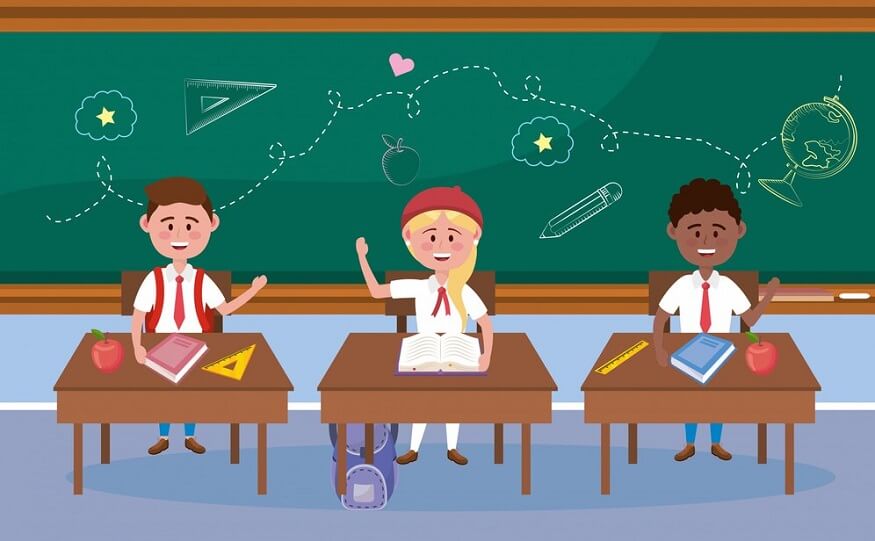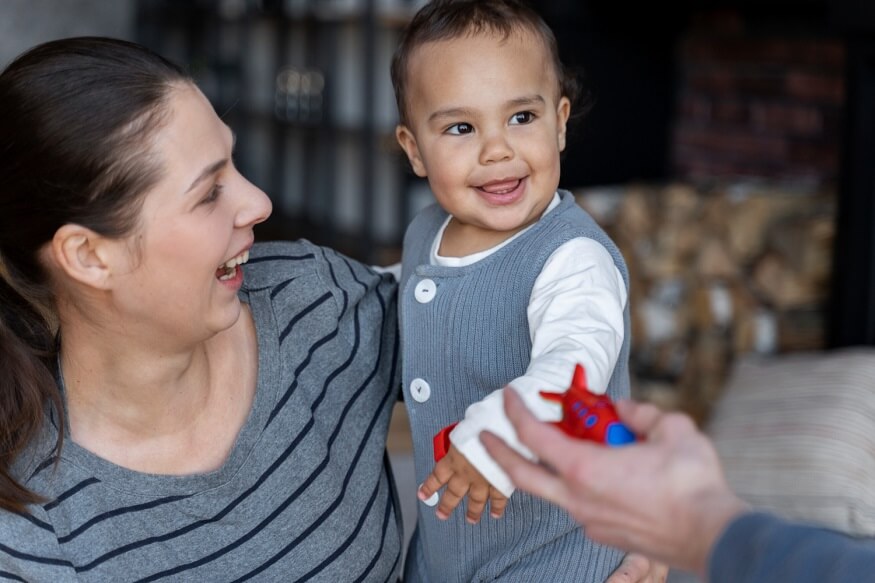The Central Board of Secondary Education (CBSE) in India, known for its comprehensive and well-structured educational framework, extends its meticulous approach to early childhood education as well. The CBSE nursery syllabus is a testament to this dedication, aiming to lay a robust foundation for young learners. This article delves into the intricacies of the nursery class syllabus under the CBSE board, exploring its various dimensions and how it shapes the educational journey of preschoolers.
Overview of CBSE Nursery Syllabus
The CBSE nursery class syllabus is designed with a child-centric approach, focusing on nurturing the intellectual, physical, emotional, and social development of children aged between 3 to 4 years. This curriculum is not just about academics; it’s an amalgamation of various activities aimed at developing skills and introducing concepts that are crucial at this tender age.
Also Read: The Evolution of CBSE Curriculum for Primary Education
Overview of CBSE Nursery Syllabus
The CBSE nursery syllabus is a comprehensive framework that encompasses various subjects and activities designed to stimulate and engage young minds. Let’s delve deeper into the specific aspects of the syllabus for English, Maths, and Environmental Studies (EVS), as well as the creative and general activities integral to this early stage of education.
Nursery Syllabus for English
Oral Topics
The oral component of the English syllabus focuses on language development through listening and speaking skills. It includes:
- Basic phonetics: Understanding and pronouncing alphabets correctly.
- Vocabulary building: Introduction to simple words and their meanings.
- Everyday conversations: Greetings, self-introduction, and simple dialogues.
- Listening to stories and poems: Developing comprehension and analytical skills.
Written Topics
The written aspect includes:
- Introduction to alphabets: Recognising and writing alphabets.
- Basic word formation: Joining letters to form simple words.
- Writing one’s name and familiar words.
- Simple drawing and colouring activities that correlate with learning letters and words.
Practical Topics
- Picture reading: Interpreting and describing scenes or objects.
- Role-playing: Enacting simple dialogues or story scenes.
- Interactive games: Language-based games to enhance vocabulary and sentence formation.
Practical activities in English involve:
Nursery Syllabus for Maths
Oral Topics
Oral mathematics activities include:
- Counting numbers: Learning to count objects and understand number sequences.
- Basic shapes and colours: Identifying and naming common shapes and colours.
- Simple comparisons: Understanding concepts like big/small, more/less, etc.
Written Topics
Written aspects involve:
- Writing numbers: Recognising and writing numbers.
- Basic exercises: Simple worksheets involving counting, matching numbers with objects, etc.
- Colouring shapes and patterns: Enhancing recognition of shapes and patterns through colouring activities.
Practical Topics
Practical maths activities include:
- Counting with objects: Using real-life objects for counting and basic arithmetic.
- Shape sorting games: Identifying and sorting shapes.
- Measurement activities: Using non-standard units (like blocks) for measuring objects.
Nursery Syllabus for EVS
General Topics
General topics in EVS encompass:
- Myself and my family: Understanding oneself and family relationships.
- Plants and animals: Basic recognition of common plants and animals.
- My home and neighbourhood: Learning about different rooms in a house and nearby places.
Practical Topics
Practical activities include:
- Nature walks: Observing the environment and collecting natural materials.
- Simple experiments: Understanding natural phenomena through safe, guided experiments.
- Sorting and classifying: Grouping objects based on different characteristics.
Nursery Syllabus for Rhymes and Stories
Rhymes and stories form a crucial part of the nursery syllabus, aimed at:
- Enhancing language skills and vocabulary.
- Stimulating imagination and creativity.
- Teaching moral values and ethics through stories.
- Engaging children in rhythm and music through rhymes.
Nursery Syllabus for Arts and Craft
Arts and crafts activities are designed to:
- Develop fine motor skills.
- Foster creativity and self-expression.
- Introduce basic concepts of colours, shapes, and textures.
- Encourage exploration and experimentation with different materials.
Nursery Syllabus for General Activity
General activities in the nursery syllabus include:
- Physical education: Simple exercises and games to promote physical fitness and coordination.
- Social skills development: Group activities, sharing, and cooperative play to develop social interaction skills.
- Sensory activities: Activities involving touch, smell, taste, sight, and hearing to enhance sensory awareness and integration.
Also Read- What Are The Goals For First Graders In Terms Of Early Reading And Writing
Key Components of the Syllabus
- Language Development
- Numerical Ability
- Environmental Awareness
- Creative Expression
- Physical Development
This segment of the CBSE nursery syllabus focuses on developing basic language skills. It includes activities like picture reading, storytelling, and introduction to alphabets and sounds. These activities are designed to enhance listening, speaking, reading, and writing skills in a fun and engaging way.
Numerical ability is developed through interactive activities like counting objects, understanding basic shapes, and introduction to numbers. This aspect of the syllabus aids in developing a child’s analytical and logical reasoning skills from an early age.
Children are introduced to their immediate environment, helping them to develop a sense of curiosity and respect for their surroundings. This includes learning about plants, animals, and other elements of nature, as well as basic concepts of cleanliness and hygiene.
Art and craft, music, and dance are integral parts of the CBSE nursery syllabus. These activities foster creativity and self-expression, allowing children to explore various textures, colours, sounds, and movements.
Physical activities and sports are included to ensure the overall health and motor skill development of the children. These activities are designed to improve coordination, balance, and physical fitness.
CBSE Nursery Syllabus Teaching Methodology
The teaching methodology in CBSE nursery classes is characterised by its focus on interactive and experiential learning. Teachers employ various tools and techniques like games, storytelling, role-plays, and digital aids to make learning enjoyable and effective. The emphasis is on creating a nurturing and stimulating environment that encourages children to explore, discover, and learn.
Sample Daily Activities in Nursery:
- Circle Time: Morning routine, including songs, greetings, and calendar activities.
- Learning Centers: Rotating through different play-based centres focusing on literacy, numeracy, and creative arts.
- Outdoor Play: Physical activities to promote gross motor skills and outdoor exploration.
- Story Time: Reading age-appropriate stories to enhance language skills and imagination.
- Snack Time: Encouraging healthy eating habits and social interactions during snack time.
- Art and Craft: Engaging in creative projects to develop fine motor skills and express creativity.
- Music and Movement: Incorporating music and simple movements to enhance rhythm and coordination.
Also Read: A Comprehensive Guide to CBSE Syllabus for Class 1-5
In an ever-evolving world, the CBSE nursery syllabus is regularly updated to meet contemporary educational needs. It incorporates modern teaching aids and methodologies to keep up with the changing times and to provide children with a relevant and effective educational experience.
At EuroSchool, we firmly believe in the ethos and effectiveness of the CBSE nursery syllabus. We are committed to implementing this curriculum with the utmost care and dedication, ensuring that our young learners receive the best possible foundation for their future academic and personal development. Check out our EuroSchool Admission process.










